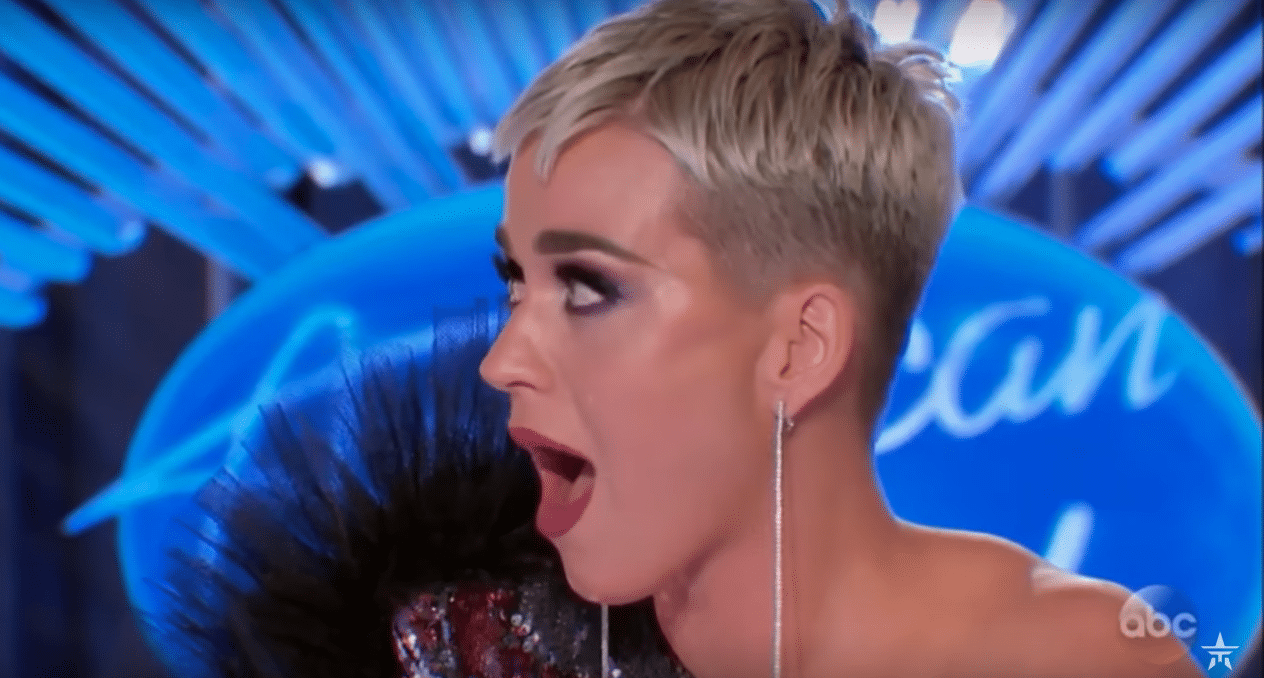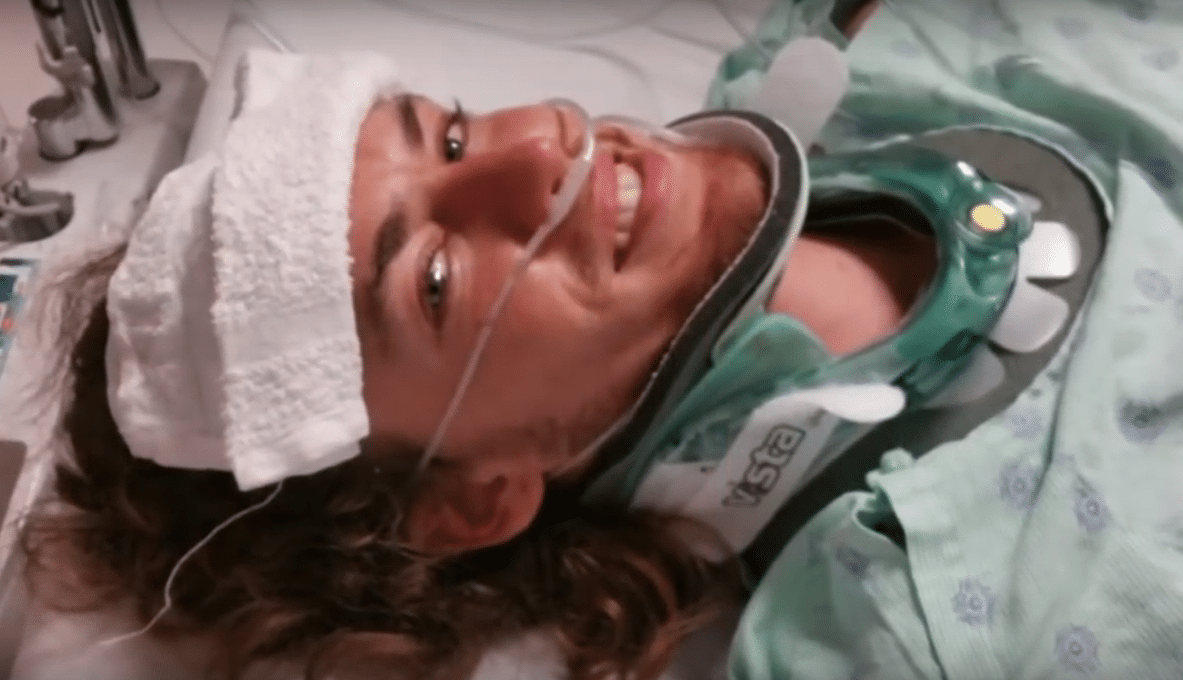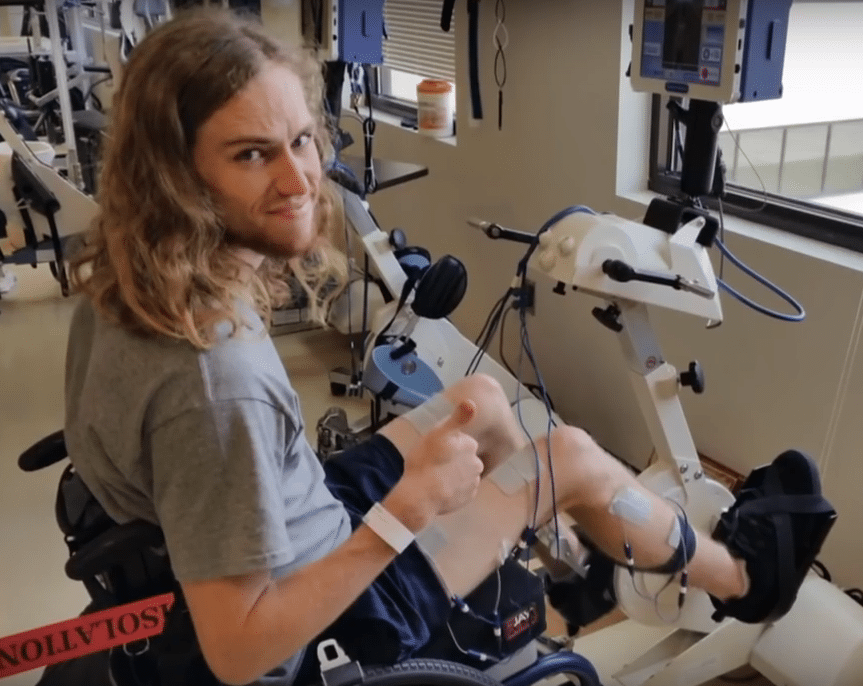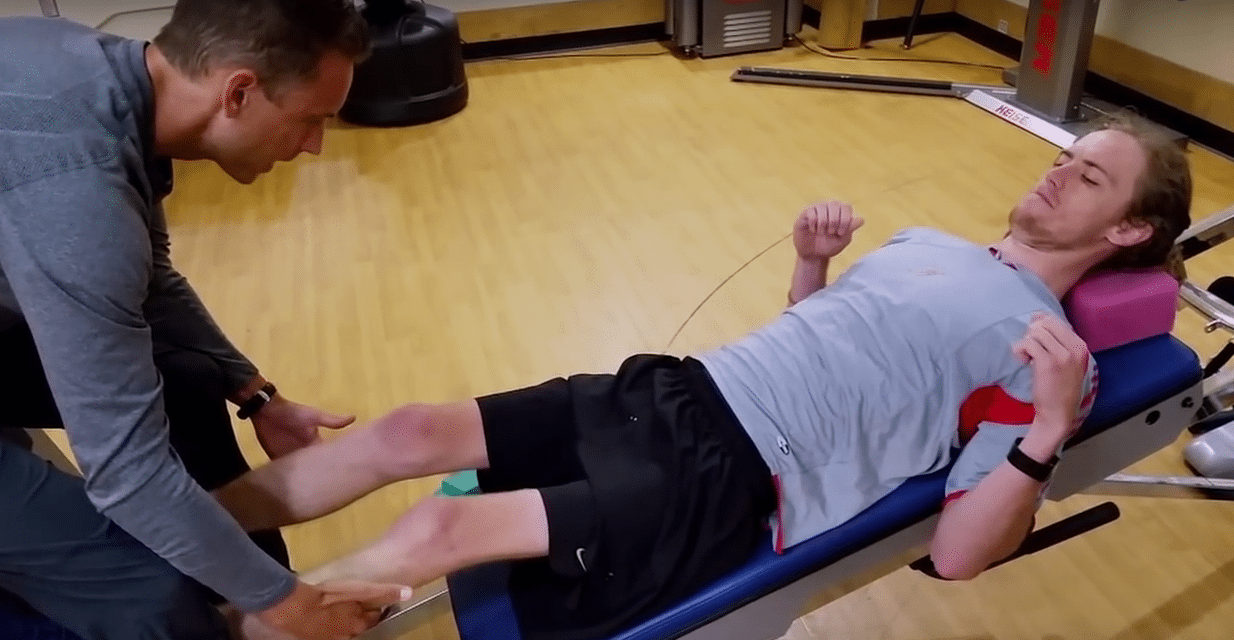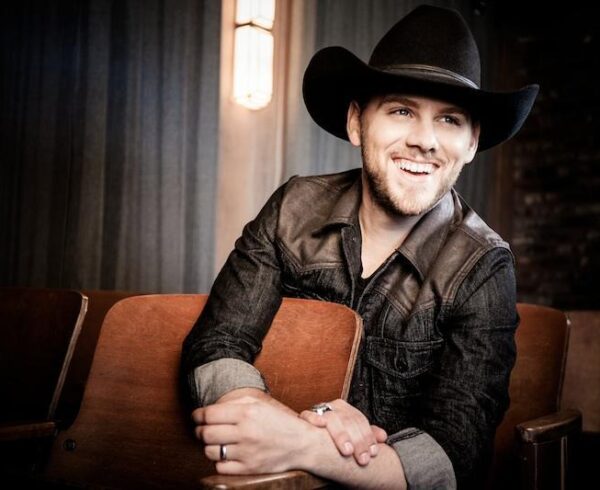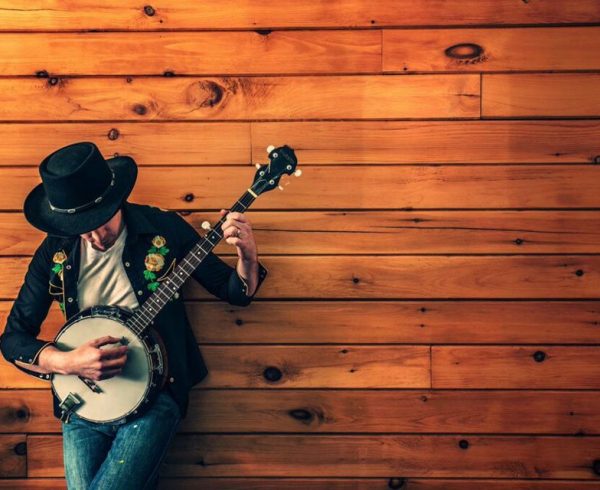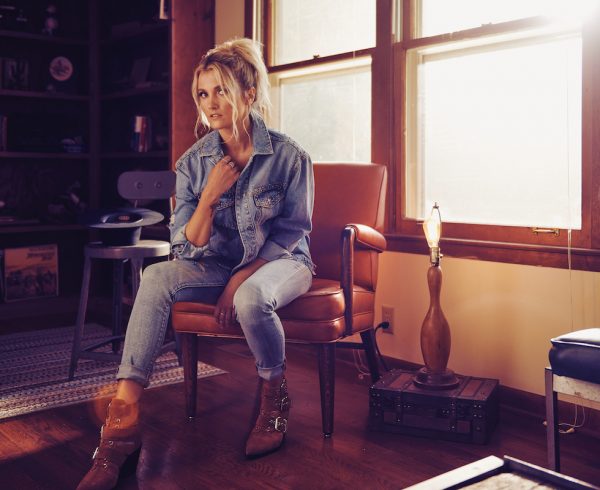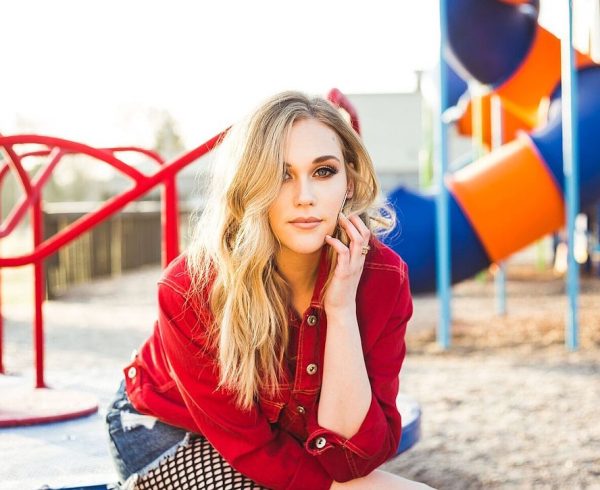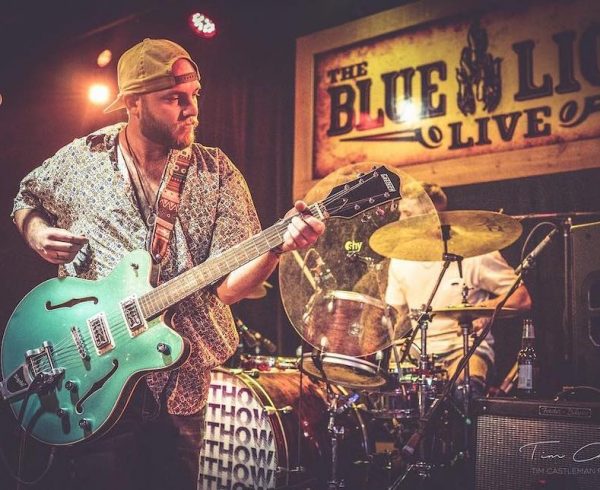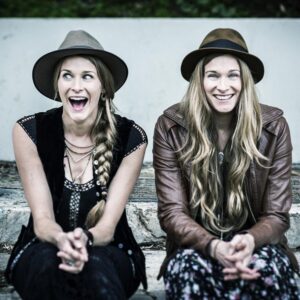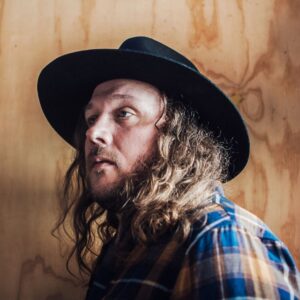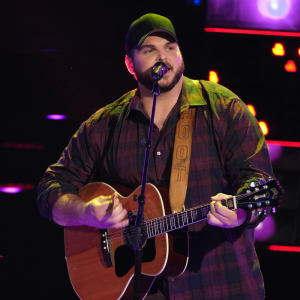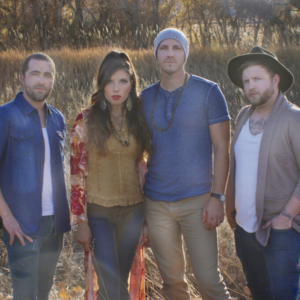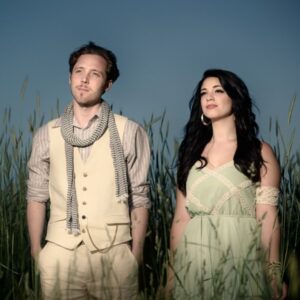The Incredible American Idol Love Story That Made Katy Perry Cry
In March of 2018, singer/songwriter David Francisco made Katy Perry cry with his performance of Stevie Wonder’s “Isn’t She Lovely” for the American Idol panel. And not just a few tears – an absolute torrent slid down Katy’s gorgeously glimmering, utterly enchanted face. She needed a tissue and fanned herself as she tried to hold it together during and after his love song.
“First of all, I’ve lost my voice, but like, I’m just watching her and like, how in love she is, and I’m just losing it,” Katy snuffles as soon as David finishes.
The “she” who he is so in love is David’s wife, Kristi, who is there watching her husband perform. Kristi also has tears streaming and glows with a look like she is nothing less than the proudest woman on earth.
The wellspring of Katy Perry’s tears was right on. Because while David’s singing is enough to make you cry, it’s the girl who makes him want to sing who has given his voice a soulfulness that truly is the fountainhead for tears of joy.
Go ahead, try and watch Kristi (a professional dancer) move to David’s live performance of “She Makes Me Wanna Sing” without crying.
It’s the song he wrote for Kristi when, during the darkest time of his life, she lit him up again. This song, its lyrics, progression, and heart, encapsulates the essence of David and Kristi’s love story.
And that leads us to a love story for the ages: the true love, real love kind; the kind you didn’t think you believed in anymore. But you clicked on this article, so you must still have a little hope smoldering. Let David and Kristi ignite it.
And yes, I know true love always exists in the everyday things, in the little things … but this isn’t even one of those love stories. There’s nothing everyday, nor little, about this love. This is a love story that is as enormous, epic, tragic, and redemptive as it gets.
You’re going to cry. Then you’re going to wipe those tears away with the goofiest, giddiest grin on your face, knowing that, as you read this, David and Kristi are out there, singing, dancing, and loving, together (cue happy ending, or perhaps, miraculous beginning):
Chapter 1: “She Got To Meet Me That One Time Before…”
On April 27, 2016, a car would crash into David Platillero (Francisco is his Spanish grandfather’s name) as he rode his bike through Nashville, jackknifing the course of his life.
But he didn’t know that on March 4, 2016, when he met Kristi Wilhelm for the first time.
Kristi, a professional dancer based in the L.A. area, was headed to a wedding in Nashville. She figured she’d make a trip of it and hit up her musician friend Gideon – who she’d danced with in a performing arts group years ago – to see if he wanted to hang out. [Much later, Gideon would be in the couple’s wedding party].
“Gideon was gigging that night in Knoxville, and another band member happened to be David Platillero … or David Francisco,” Kristi recalls.
She was in a rough relationship at the time, and hanging with genuinely good guys like Gideon and David was just what she needed.
“I was in a slump in general, you know, boy-stuck,” Kristi says. “But that trip, David and Gideon really brightened up my day. We laughed, we had deep conversations … it was just lovely company for me.”
Meeting a new friend as real as David refreshed Kristi’s outlook.
“My first impression of David was just Wow – this light of a guy,” Kristi’s voice is a smile. “Very genuine. He could make me and Gideon laugh, but then also start a conversation topic that was super deep. It was absolutely just as friends – literally nothing romantic passed through my brain at that point – it was, ‘Oh man, this gives me hope,’ you know?”
Kristi left without witnessing one of David’s most magical gifts firsthand.
“David and Gideon both sing, but they were just band members that day so I didn’t hear David sing,” Kristi says. “Before I left David said, ‘Oh, I need to give you a CD.’ But he forgot, so Gideon came through. He had one in his car and gave me one.”
Hearing David sing on his EP – Built for Two – rocked Kristi’s world to the point she was almost glad she hadn’t heard his vocal magic live.
“On our way back home, Gideon says, ‘Hey, do you wanna hear David’s CD?’ … ‘Yeah of course, he was such a great guy,” she says, not knowing what she’s in for. “I was playing the music, and I literally hide myself in my shirt like, ‘Boy what?’ He sounds like THAT? What? … I say to Gideon – ‘I’m so glad I didn’t know he could sing so well or I would have been fan-girling hardcore.’
Kristi was not easily blown away by talented musicians, being a performance artist herself.
“I’m used to people dancing and singing and being talented; in a way, I’m not really phased anymore because all my friends are talented,” Kristi says. “So the fact that I was phased by him was a big deal.”
David’s CD became Kristi’s everyday playlist on repeat.
“I fell in love with his CD. I went back to my life in California, and I literally listened to his CD in my car every day,” Kristi said. “At that time, I had two jobs, [dancing for] Disney and another job, so I was in my car half the day. I knew every word by heart, and that was it: ‘I met this guy for his music.’”
When Kristi ended her previous relationship, David’s music gave her a lifeline.
“I was healing, and in a down place, so David’s music really hit home for me,” she says.
Inspired, Kristi shared David’s music with friends and family. Her mom found David’s lyrics so compelling that she unwittingly predicted the future.
“I showed all my friends, trying to promote David – this local artist I found in Tennessee, and they loved it,” she says. “I showed my family, and my Mom said, ‘You need to find a guy’ – basically to marry – ‘who talks like this guy in his songs’ … Now it’s a joke because … ‘Well why don’t I just marry him?’”
Thus sums up “the OG meet up” as Kristi and David call it. But this original meet up would come to carry so much more meaning than David or Kristi ever could have fathomed.
“Now it’s a really treasured memory because that was the only time I met David before the accident,” Kristi says.
“I don’t know if I’ve told you this Kristi,” David says, “but I remember thinking, during that early time [after the accident], ‘This is a bummer, ’cause I don’t think I’ve met my wife, and she’s not going to have lived this with me. And this is the most significant thing that’s ever happened to me.’”
He was wrong.
“But, it’s really cool that she kind of did live it,” David says. “She saw before, during, after. She got to meet me that one time before so she’s got the whole thing. It’s beautiful.”
The next time Kristi and David saw each other, he was in a wheelchair.
Chapter 2: “I thought I lost everything”
David graduated UT with an electrical engineering degree at 22. At 24, he felt inspired to pursue his heart’s passion – music – and decided to up his sound engineering game. He enrolled in Blackbird Academy, a six-month program at one of the best studios in Nashville.
“It was one of those moments in life where I said, ‘I’m ready for a change,’” David recalls.
Change came harder, faster, and through a much more destructive medium than David could have predicted.
“It was three weeks into class that I was biking home and got hit by the car,” David says. “April 4 I moved to Nashville. April 27 was the accident. I thought I lost everything.”
David’s depth of faith and love and strength of character shone through from the moment he awoke in the hospital … with no feeling or function below his waist.
“When I woke up, and they told me what happened: ‘You got hit,’ the first thing I did was ask, ‘What happened? Is the driver okay?’ Because I knew that would be traumatizing,” David says.
Without hesitation, David chose forgiveness for the person who had irrevocably altered the course of his life.
“I told my family and whoever was in the hospital room at the time: ‘Tell her I forgive her, tell her it’s gonna be okay,’ whatever,” David remembers.
Kristi interjects: “Not whatever! That’s a big deal! … That was his first thought – ‘Tell her it’s okay, and I forgive her, and I’m going to be okay.’ Instead of feeling anger or resentment, that was David’s first thought.”
“That was really what made sense to me,” David says. “I want to bring light into the world. So it just made sense to forgive.”
Having a strong support system allowed David to choose love and recovery over resentment and defeat.
“I really needed my friends and family at that time. They were encouraging me and telling me, ‘We’re going to get through this; you still have a purpose. That was exactly what I needed. I think that’s what gave me the capacity to forgive and to fight instead of giving in to what happened to me.”
The doctors told David he would never walk again, at least not on his own.
“The day of the accident, they said I would never get any function back,” David remembers. “The next day, the surgeon said, ‘Neurological recovery unlikely – best case, he could maybe be walking with some cages around his legs’ – metal cages, which is basically stilts, so not really functional.”
David prepared for a physically impaired future, but he refused to believe there wasn’t hope beyond his prognosis.
“I was kind of set to be in a wheelchair for the rest of my life,” David says. “But we took that lightly. We said, ‘Maybe, but let’s just see what happens – maybe they don’t know everything.’”
Despite his positive outlook and tight-knit support, certain fears clawed at David: Had he lost his independence or his chance at music, love, intimacy, and a family of his own?
“I’d just moved to Nashville for music so I thought I lost the music I was trying to do,” David remembers. “Are people going to have to take care of me for the rest of my life? I thought I might have lost the ability to have kids. And I was actually a virgin at the time so I was like, ‘Man I’m never gonna be able to experience sex?’ … All these things that I thought I had lost.”
Believing he hadn’t yet found the love of his life, he feared that now – like this – he never would.
Chapter 3: “Does it move? Does it move?”
After the accident, David entered the insular world of spinal cord injury rehab.
“I just focused hardcore on therapy. I lived at the hospital so it was easy to get lost in that artificial world,” David says. “I went to the Shepherd center, and everyone had a spinal injury or a brain injury, or was a nurse or a therapist. It was a great environment because trying to go back into the real world and needing that much care would have been really hard.”
Not even two months after the accident, David tasted the “real” world – the one he once had navigated so easily – and found managing it excruciatingly painful and overwhelming.
“The first time I went home was to play at a friend’s wedding. My back was always in pain at that time. It was really bad – we ended up putting a pillow on the chair on the side of the altar because my butt had turned to bone,” David says. “I remember crying that whole next morning: ‘Holy cow, this is what it’s like?’ I tasted what my old life was like, but from a wheelchair, and with pain and with catheters, and it was just depressing. The amount of work it was just to do a simple fun thing was very disheartening.”
The injury withered David’s physical stature as well as his outlook.
“Literally, I lost all muscle. I lost 30 pounds in my legs,” David recalls. “I was 155, down to 127. It was sad. I’m six foot. It was Holocaust style legs; that’s exactly what they looked like, the only way I could describe it to people.”
But in the midst of all encompassing darkness, a tiny light: A twitch of the toe.
“I stayed in Atlanta doing therapy until December. I went from nothing to moving my foot for the first time about a month in,” David says. “Keep in mind, nothing else works – just the one foot. Maybe the next week, the other foot kind of twitched. It was on and off too; it would twitch, and then the next morning, I’m like ‘Does it move? Does it move? … not really.’ And then it would kind of work again.”
Through such an arduous, tedious, seemingly impossible recovery, David learned patience and perseverance to a degree few humans ever could understand – they wouldn’t take the time. They could afford to give up. David had no choice.
“None of the recovery in itself felt that substantial,” David remembers. “But man, it was a lesson in patience and faith and consistent hard work. I’ve never been so motivated in my life. If you see your foot move, and you’ve been told you have a window of time where you might get recovery, and you start, it’s like, ‘Oh my gosh yeah, I’m gonna work.’”
As life in a wheelchair became a reality, David found he could make the most of being alive without the ability to walk.
“That period was healing … being able to drive with hand controls, basically being kind of independent again in a wheelchair,” David says. “On one of the nights, I remember I actually wanted go out and get dinner. So I went to this ramen place, but doing that was a big thing because you have to roll the wheelchair out to the car … just transferring into a car from a wheelchair is a pretty big gap. You can’t even sit up without feeling like you’re on a yoga ball trying to balance.”
Soon David had a specific goal to recover toward.
“At that time in Atlanta, I was on the up and up,” David says. “And Blackbird [Academy] told me pretty early on, ‘Hey, we want you to come back. We’ll build ramps; we’ll do whatever we need to do.’ Big on them. Just… what? And they said they would give me a full ride – ‘You don’t even have to pay.’”
David returned to Blackbird in January of 2017 – about eight months post accident.
Four months prior, in the midst of his recovery, some “randomly” miraculous pieces began to fall into place. But even before then, we need to rewind to just after the accident, to a very specific one of the many, many letters of encouragement David received during his recovery…
In Part Two of David’s story, we learn more about he and Kristi’s long-distance relationship began to develop and grow.

